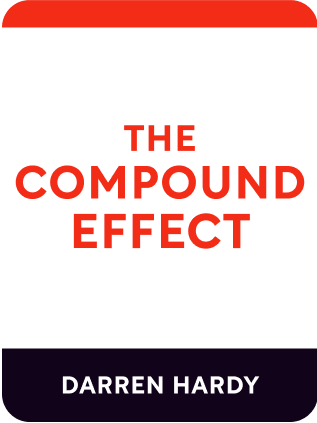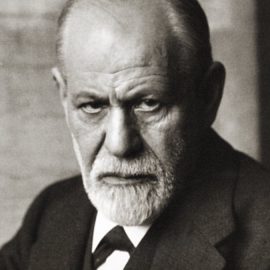

This article is an excerpt from the Shortform book guide to "The Compound Effect" by Darren Hardy. Shortform has the world's best summaries and analyses of books you should be reading.
Like this article? Sign up for a free trial here .
Do you feel like your choices are sabotaging your best intentions? How can you make better decisions that are in line with your goals?
Decisions, no matter how tiny, alter the course of your life because they lead to behaviors, and behaviors lead to habits. With awareness, you can make better decisions that lead to the behaviors and habits that support a happy, successful life.
Here is how you can make better decisions, according to Darren Hardy.
Making Better Decisions Helps You Become a Better You
Most people don’t make bad decisions on purpose. No one strives to be overweight, divorced, or bankrupt. The problem is that many of our choices are ingrained in our routines and habits; we aren’t consciously making them. When multiple small, poor choices proliferate, we end up in a bad place. We sabotage ourselves without even knowing it.
To make better decisions, you need to become aware of the moment-to-moment choices you make rather than existing on autopilot.
Small Choices, Big Repercussions
Sometimes you can make a single big, catastrophic choice that damages your career or relationships. Think of celebrity mishaps, like the comedian who was caught on tape hurling racial slurs, or the anti-gay politician caught soliciting gay sex. These mistakes are doozies and they have swift, severe repercussions.
The real problem for most of us, however, isn’t such massive mistakes; it’s the repeated, small choices that seem to be inconsequential. Because you’re not mindful of them, they can throw your life off course. For example, say you grab a snack and watch TV; suddenly it’s two hours later and you’ve eaten an entire jumbo bag of potato chips and several cans of soda—and didn’t finish an important project. You made these choices without thinking. When this kind of choice is made repeatedly, your live veers off course.
The Compound Effect is always working, but continued small, poor choices—made mindlessly— have it working against you.
To Make Better Decisions, Focus on the Positive
One such small negative choice is focusing on the negative qualities of other people or situations. It’s a bad habit that leads to a cycle of negativity—compounded negativity.
Focusing on what you are thankful for, however, creates a compound effect of positivity.
To illustrate this, Hardy shares the story of a friend whose marriage was on the verge of collapse. This man complained about his wife constantly and saw her as the source of his unhappiness. Hardy shared with his friend an experience that strengthened his own marriage.
One Thanksgiving, Hardy decided to keep a yearlong journal of gratitude about his wife to present to her the following Thanksgiving. Every day that year, he wrote down something about his wife he appreciated, whether it was a meal, something she said, how she related with her friends or cared for her dogs, how she looked, and more.
While his wife was elated about the gift, Hardy was the one most affected by this experience. He had spent a year focusing on the positive, often subtle, qualities of his wife and gained a greater appreciation for her. His gratitude and positive feelings changed his behavior toward her; she responded with even more wonderful qualities and behaviors toward him.
Hardy’s friend gave this gratitude exercise a try and was able to turn around his marriage. By viewing his wife through a lens of positively, he changed his behavior toward her; she then chose to respond to him differently, leading to a new, compounded cycle of positivity.
Choose to Take Responsibility for Your Life
You are always 100 percent in control of yourself. When you take full responsibility for yourself, you hold unlimited power to control your destiny. Taking 100 percent responsibility for your life means you are completely responsible for what you do and don’t do, as well as your response to what happens to you. You don’t blame bad luck or outside circumstances.
Example: 100/0
At a seminar when he was just 18 years old, Hardy’s instructor asked the participants how much responsibility one person holds in a relationship. Hardy said 50/50, while others threw out 51/49 and 80/20. The instructor wrote out “100/0,” saying that for a relationship to work, you have to be willing to give 100 percent without expecting anything in return. It’s entirely up to you.
This resonated with Hardy; he understood that if he always took 100 percent responsibility in all areas of life, he held the power.
People think they take responsibility for their lives, but many point to outside factors when things don’t go their way. Victimhood lets you off the hook when problems occur. For example, say you’re late to work. If you’re not taking 100 percent responsibility for your life, you blame the traffic or something that delayed you. But if you take 100 percent responsibility, you’d understand you should have left sooner or been more prepared before you left the house.
Example: It’s All Your Fault—and That’s a Good Thing
Hardy once was asked to become a partner in a startup venture; he invested a great deal of money and worked hard for two years, only to find out his partner had lost the entire investment through mismanagement—more than $330,000.
Hardy didn’t sue the partner or even hold a grudge. He took full responsibility for the loss, acknowledging that he didn’t research the partner fully and didn’t watch the finances closely. Through a series of small choices, he ignored red flags and, ultimately, took responsibility for the results. He learned his lesson and moved on from the experience.
The Truth About Luck
We’re all lucky to some extent. If you’re alive, healthy, and know where your next meal is coming from, you’re very lucky. Beyond the basics, the kind of luck we associate with success and good fortune is actually the result of a series of choices. Richard Branson, for example, felt he was no more lucky or unlucky than anyone else. The difference was he took advantage of good luck when it came his way.
An old adage says, “Luck is when opportunity meets preparation.” Hardy says there’s more to it: luck is a combination of the following:
- Preparation: When you prepare yourself by constantly seeking to improve, you can pounce on great opportunities when they come your way. The great golfer Arnold Palmer once said, “It’s a funny thing; the more I practice, the luckier I get.”
- Attitude: When you take the attitude that luck is all around you, you can find good fortune in the situations, circumstances and conversations you encounter every day.
- Opportunity: Though you can “make your own luck,” this kind of luck is something unplanned—a natural occurrence that comes out of the blue.
- Action: When luck lands in your lap, it’s up to you to do something about it. When you take action on the lucky things that happen to you, you can achieve great success.
Luck doesn’t play favorites; it’s distributed equally to all of us. Instead of blaming bad luck when you find yourself in unfortunate circumstances, understand that other people have it worse than you. It’s up to you to take advantage when “lady luck” makes an appearance.

———End of Preview———
Like what you just read? Read the rest of the world's best book summary and analysis of Darren Hardy's "The Compound Effect" at Shortform .
Here's what you'll find in our full The Compound Effect summary :
- How small, daily actions can add up to big successes (or failures)
- Why it's easier to rely on the compound effect over time instead of taking big action all at once
- How it's possible to be better off starting with a penny than $3 million






